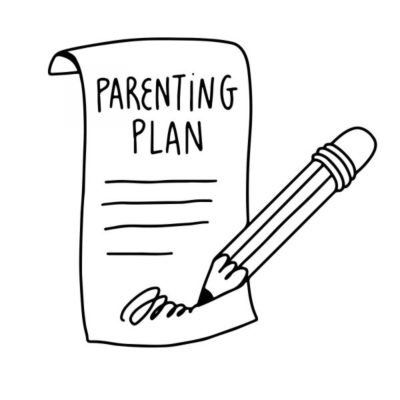
Parenting Plan
Following the breakdown of a family unit, parents can make arrangements for their children, independent from the Courts and without the need to commence Court proceedings (if appropriate). Parents can choose to make an informal verbal arrangement as to where the child lives and how much time the child spends with the other parent as well making decisions about the child’s long-term needs and major matters such as decisions about education, health, and religion. In other instances, parents may wish to have such arrangements in writing, as a future reference point for the parents and to avoid any potential disagreement. This type of document is referred to as a “Parenting Plan”. A Parenting Plan is likened to a private contractual arrangement between the parents, providing flexibility to be changed and amended as the needs of the child or circumstances change. Alternatively, parents are also able to file Consent Orders in respect of parenting arrangements.

Parents are able to finalise parenting arrangements by engaging in negotiations, exchanging correspondence with proposals between themselves or via their solicitors, or by attending a Family Dispute Resolution Conference (Mediation) with a view of formulating a Parenting Plan. Mediation is a more structured approach and takes place with a qualified Family Dispute Resolution Practitioner. Mediation may be conducted face-to-face, by telephone or shuttle. These alternative dispute resolution process (if appropriate), provide parents with the opportunity to resolve any remaining issues in dispute and to formulate parenting arrangements without commencing Court proceedings. Should the parents reach an agreement, then a Parenting Plan can be prepared and entered into by the parents.
A Parenting Plan should be broad in scope and cover a arrange of matters concerning all aspects of the child’s life. It should include arrangements for both parents to have “equal and shared parental responsibility” as to making decisions in relation to the child’s long-term care, welfare and development in respect to the child’s long-term needs and major matters.
A Parenting Plan should also reflect parenting arrangements that are in the “best interests of the child”, which includes the child spending “equal time” or “substantial and significant time” with both parents. This means, that the child will generally live with one parent and spend frequent time with the other parent on a scheduled basis for sufficient periods of time on each occasion to ensure the child develops a relationship with the other parent. Additional time is scheduled for days of significance and school holidays. Arrangements will differ depending on the child’s age, with future arrangements to trigger when the child reaches certain developmental or age milestones. Parenting Plans should also include arrangements for a child to communicate with the other parent, when they are not living with them.
Cautiously, a Parenting Plan are not enforceable by the Court, and therefore in the event that a parent does not follow the terms of a Parenting Plan, the Court would not be able to enforce the other parent to comply. However, should a parent commence Court proceedings seeking Parenting Orders, the Court may take into account the existing parenting arrangements provided for by a Parenting Plan in making fresh Parenting Orders.
If you would like advice about your family circumstances and your options, please contact our firm for an appointment.
Disclaimer: This publication provides general information of an introductory nature and is not intended and should not be relied upon as a substitute for legal or other professional advice. While every care has been taken in the production of this publication, no legal responsibility or liability is accepted, warranted, or implied by the authors or our firm, and any liability is hereby expressly disclaimed.
